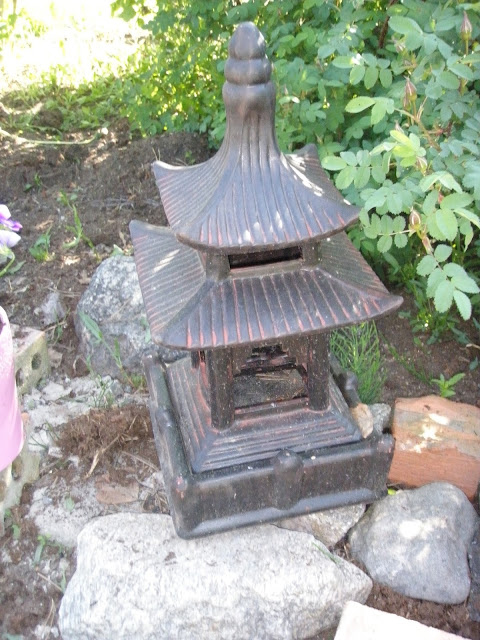So, what is traditional for midsummer celebration in Finland? I cannot speak for the whole country as traditions may differ from one area to the other, but I will explain how it is and has been celebrated in my area. In the past times the midsummer time was considered magic and even a bit threatening, it was thought that evil spirits and ghosts were fooling around on the Earth. A suitable way to repel the potentially harmful influence of those spirits was to be as badly drunk as possible and burn big, bright midsummer bonfires. (Sounds like a dangerous combination, right?)
At the same time it was considered a time when forecasts about the coming year could be made and people used to perform rituals to secure their livelihood and good luck on the marriage market, the latter usually only concerning young girls (which annoys the hell out of me because it's not equal!) When I was a child my grandparents and parents told me that young girls were supposed to collect seven different kind of wild flowers and put them under their pillows, so they would meet their future husband in their dream. Another way to see the future husband was to peek into the well. The image of him should be reflected on the surface of the water. I wonder how many young ladies met the grim reaper instead of the fiance after falling into the well..
For midsummer people used to, and still do if possible, place birch trees on both sides of the entry to the house. It is still traditional to bathe in the midsummer sauna to be lean when it's time to celebrate on earnest. As a matter of fact, even if some traditions will fade, one tradition is going to stick around: Finns have always been and will always be drunk as a skunk during midsummer. And this leads me to describing the ways to die during the festival.
1. Traffic. Midsummer is one of the most popular times to go to the countryside, and that means more traffic than usual. Sadly, it is not uncommon to drive in the state of serious intoxication which increases the risk of traffic accidents. Someone dies every year.
2. Drowning. Midsummer is also a popular time to be on the boat and as many summer cottages are located on a lake shore, there's plenty of fresh water to drown into. I remember at school a first aid teacher once told us that 80% of the people who fall from the boats and drown in the lakes are young men and 80% of them have their fly opened (that is, they wanted to pee to the lake but being drunk ended up falling into the water. Well, there will be no further need to pee..)
3. Fight. When alcohol is involved, people might get a bit aggressive. Especially the ones who have the "drink and fight" gene. So, someone might end up in the hospital or in the cemetery.
There are other ways to end the days during midsummer, too, like alcohol poisoning etc. but let's not dwell on the subject. Juhannus in general is a happy holiday when families or groups of friends gather together. There will be barbecue, beer, cider, plenty of food and weather permitting people will be outdoors. Some skiing centers and other holiday resorts organize their midsummer night's party where it's impossible to run out of alcohol.
One more direct consequence of midsummer night's more relaxed behavior is the occasional peak in the birth rate nine months later. (According to statistics there doesn't seem to be a relevant connection between midsummer and a baby early the next year but this myth still lives and people joke about it a lot. :)
So, are you ready to celebrate midsummer? great! Hyvää juhannusta! Happy Midsummer!





Ei kommentteja:
Lähetä kommentti